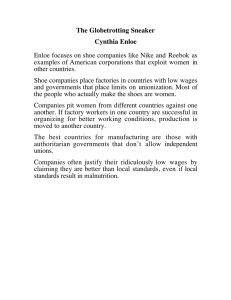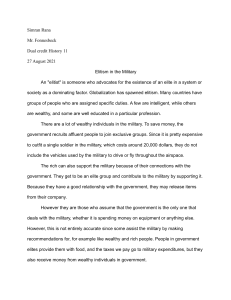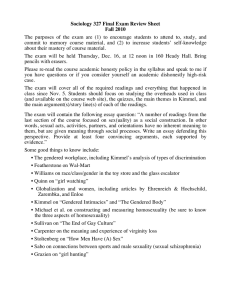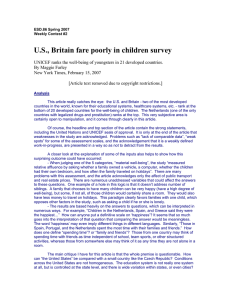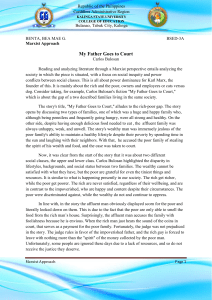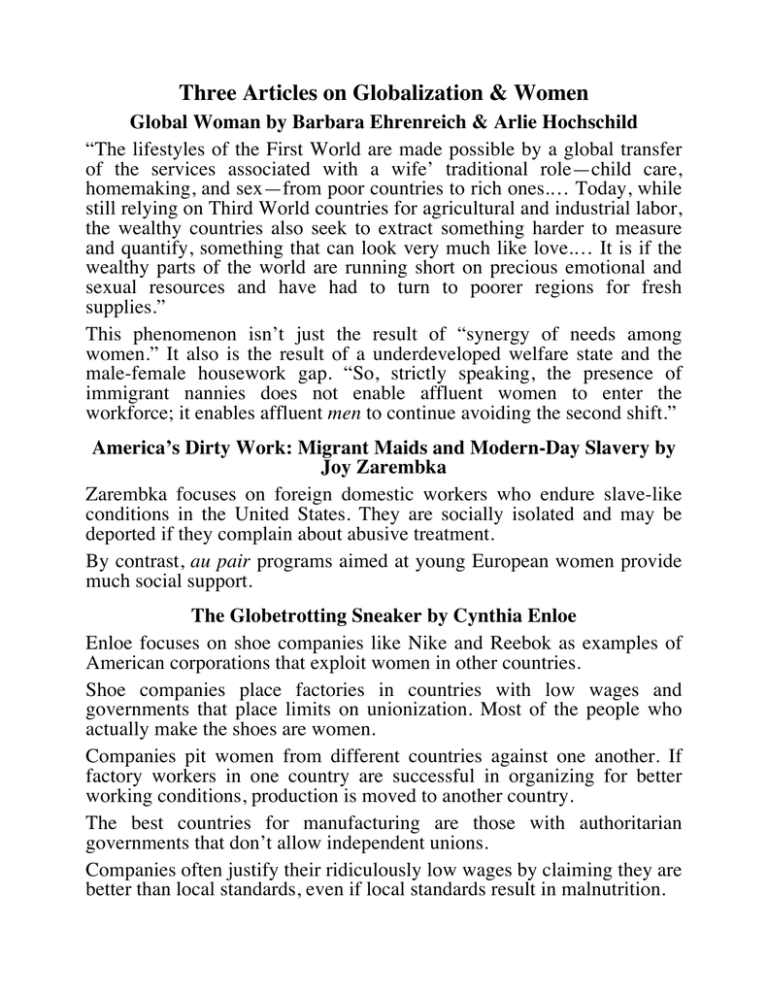
Three Articles on Globalization & Women
Global Woman by Barbara Ehrenreich & Arlie Hochschild
“The lifestyles of the First World are made possible by a global transfer
of the services associated with a wife’ traditional role—child care,
homemaking, and sex—from poor countries to rich ones.… Today, while
still relying on Third World countries for agricultural and industrial labor,
the wealthy countries also seek to extract something harder to measure
and quantify, something that can look very much like love.… It is if the
wealthy parts of the world are running short on precious emotional and
sexual resources and have had to turn to poorer regions for fresh
supplies.”
This phenomenon isn’t just the result of “synergy of needs among
women.” It also is the result of a underdeveloped welfare state and the
male-female housework gap. “So, strictly speaking, the presence of
immigrant nannies does not enable affluent women to enter the
workforce; it enables affluent men to continue avoiding the second shift.”
America’s Dirty Work: Migrant Maids and Modern-Day Slavery by
Joy Zarembka
Zarembka focuses on foreign domestic workers who endure slave-like
conditions in the United States. They are socially isolated and may be
deported if they complain about abusive treatment.
By contrast, au pair programs aimed at young European women provide
much social support.
The Globetrotting Sneaker by Cynthia Enloe
Enloe focuses on shoe companies like Nike and Reebok as examples of
American corporations that exploit women in other countries.
Shoe companies place factories in countries with low wages and
governments that place limits on unionization. Most of the people who
actually make the shoes are women.
Companies pit women from different countries against one another. If
factory workers in one country are successful in organizing for better
working conditions, production is moved to another country.
The best countries for manufacturing are those with authoritarian
governments that don’t allow independent unions.
Companies often justify their ridiculously low wages by claiming they are
better than local standards, even if local standards result in malnutrition.

